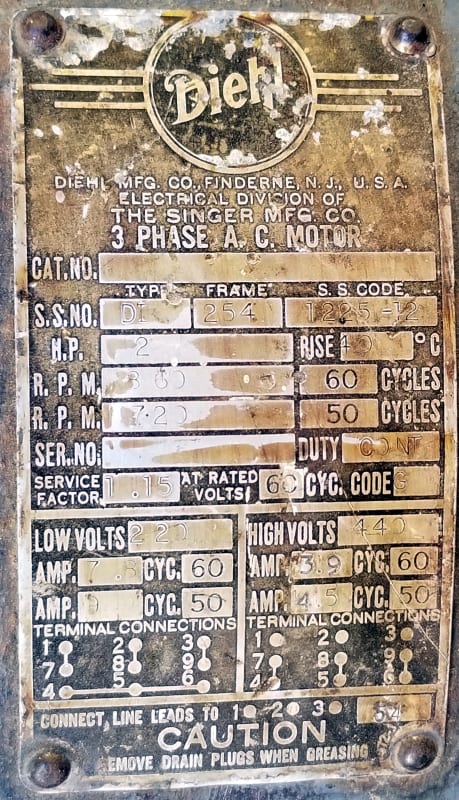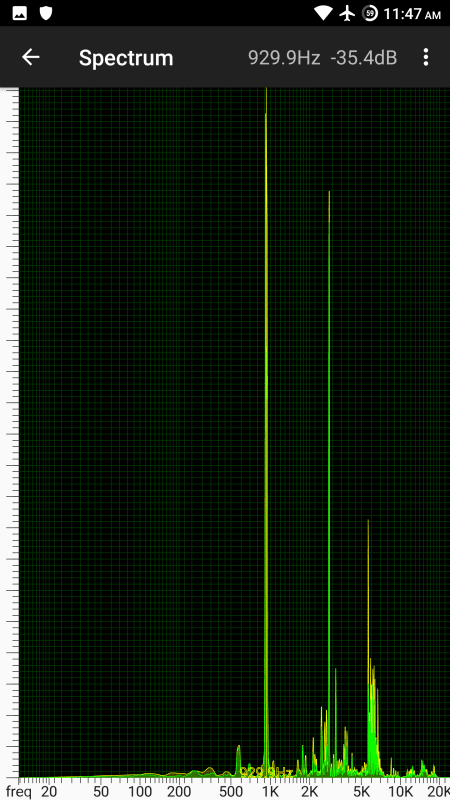This motor has a terrible, high-pitched whine when energized, and I'm trying to figure out the cause and eliminate it, if possible.
Manufactured by Diehl
Rewound for only 220v previous to my acquisition
Nameplate info (220v): 2 HP, SF 1.15, RPM 860, FLA 7.8, 3 phase
It will be driven by a VFD. First I assumed the whine was because of the VFD's switching frequency (SF), but I tried two different VFDs at every available SF up to 16 kHz with no change to the whine. I then pull-started it and ran it on single phase 220v, which confirmed the whine is not VFD-related. I turned the motor passively without energizing it using a different motor and a v-belt; It reached 200 RPM over its rated RPM and was silent at all speeds between 0 and the max, proving that it only whines when energized. It has new bearings. I opened the motor again (after replacing the bearings) to more closely-inspect, paying special attention to the thin (ferrous) metal bell flare airfoils at each end. I thought those would be most susceptible to magnetic resonance. Upon inspection, I found no loose welds, and when impacting the thin metal in many places with a screwdriver handle, I got solid tones of the same pitch, indicating no looseness. There is a small gap between the outer perimeter of the airfoils and the end bell castings. I'm not sure it that's enough to allow them to be vulnerable to magnetic resonance.
Someone I know has suggested energizing the stator without the rotor and end bells just for a second or two to help determine if the whine coming from the stator. I've read several posts here about energizing a motor stator only for testing, and I get an incomplete picture. More than one post warned to never energize a stator [only] with full voltage. The idea of energizing this stator to learn if that's where the whine is intrigues and tempts me, but after what I've read so far, it seems riskier than I'm comfortable with. Also, if I applied a much lower voltage to the stator (as suggested in various posts here), I'm not sure that very low voltage would generate the whine that I hear when the motor is at full voltage and fully assembled.
I would welcome any insights on this noisy motor.
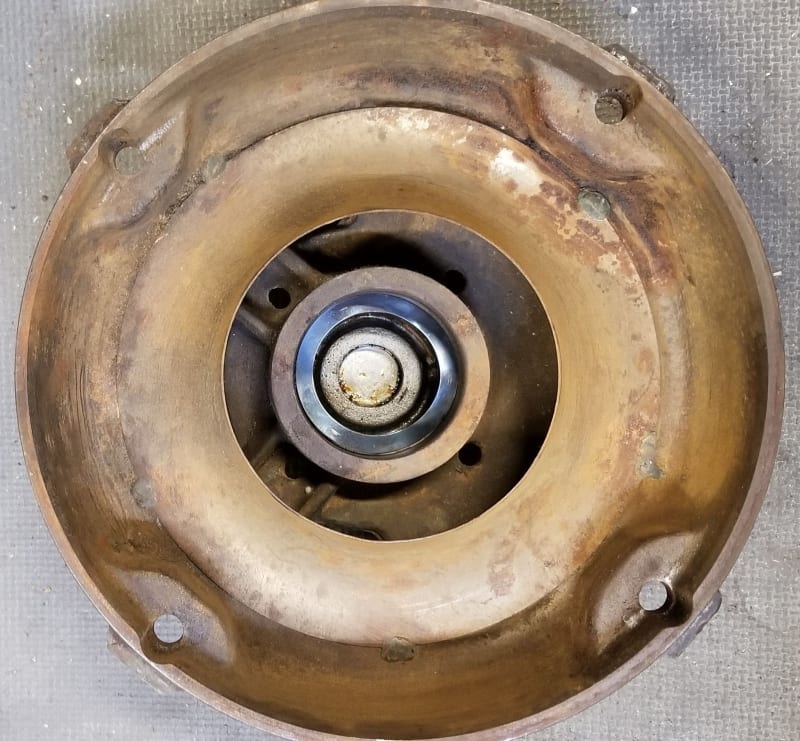
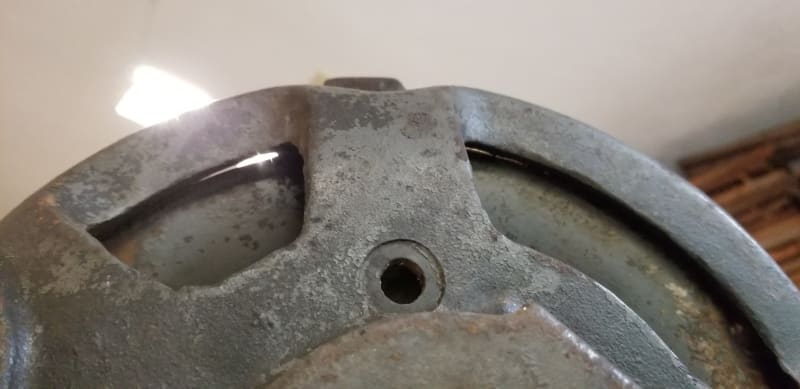
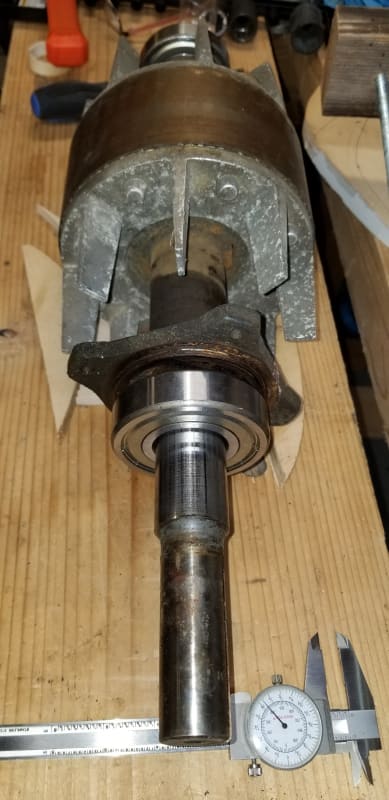
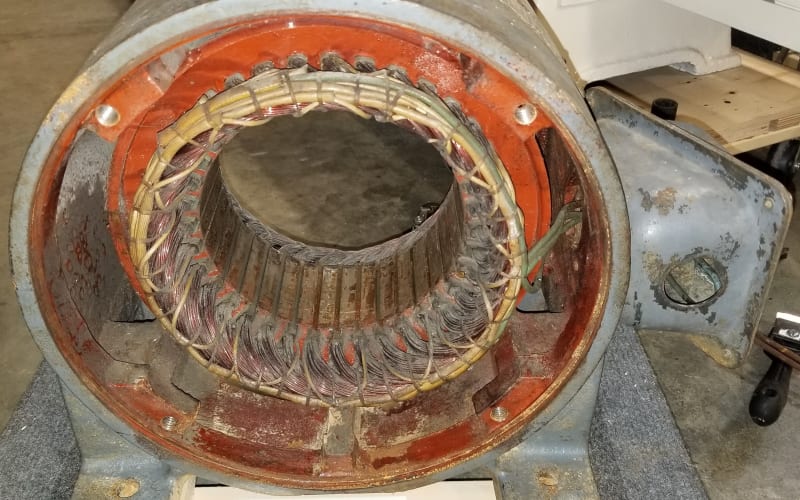
Manufactured by Diehl
Rewound for only 220v previous to my acquisition
Nameplate info (220v): 2 HP, SF 1.15, RPM 860, FLA 7.8, 3 phase
It will be driven by a VFD. First I assumed the whine was because of the VFD's switching frequency (SF), but I tried two different VFDs at every available SF up to 16 kHz with no change to the whine. I then pull-started it and ran it on single phase 220v, which confirmed the whine is not VFD-related. I turned the motor passively without energizing it using a different motor and a v-belt; It reached 200 RPM over its rated RPM and was silent at all speeds between 0 and the max, proving that it only whines when energized. It has new bearings. I opened the motor again (after replacing the bearings) to more closely-inspect, paying special attention to the thin (ferrous) metal bell flare airfoils at each end. I thought those would be most susceptible to magnetic resonance. Upon inspection, I found no loose welds, and when impacting the thin metal in many places with a screwdriver handle, I got solid tones of the same pitch, indicating no looseness. There is a small gap between the outer perimeter of the airfoils and the end bell castings. I'm not sure it that's enough to allow them to be vulnerable to magnetic resonance.
Someone I know has suggested energizing the stator without the rotor and end bells just for a second or two to help determine if the whine coming from the stator. I've read several posts here about energizing a motor stator only for testing, and I get an incomplete picture. More than one post warned to never energize a stator [only] with full voltage. The idea of energizing this stator to learn if that's where the whine is intrigues and tempts me, but after what I've read so far, it seems riskier than I'm comfortable with. Also, if I applied a much lower voltage to the stator (as suggested in various posts here), I'm not sure that very low voltage would generate the whine that I hear when the motor is at full voltage and fully assembled.
I would welcome any insights on this noisy motor.





